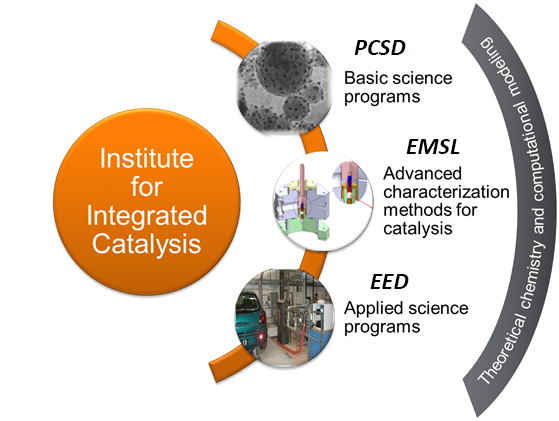About the IIC
Developing the Chemistry and Technology of Catalyzed Processes for the Energy Future
Catalysts are key to our current and future economy. Industrial processes and energy production must be revised to meet energy demands. Catalysts facilitate chemical transformations that convert waste and biomass into useable fuels and bio-based chemicals. They also power fuel cells that convert chemical energy into electricity and transform vehicle emissions.
Currently, 80 percent of all chemical products and energy carriers are made using catalysts in at least one of the processing steps. Maintaining a robust economy requires not only reinventing the industrial processes of today but also harvesting and using dispersed energy resources.
These challenges define the mission of the Institute for Integrated Catalysis:

- Provide the insight, synthetic tools, and engineering concepts to enable catalyzed chemical and chemical-electrical energy interconversions.
- Develop experimental and theoretical tools to better understand the structure and properties of working catalysts, informing preparation of novel catalysts with novel reaction routes.
- Translate fundamental insights of catalyst function into novel and improved catalytic technology.
The IIC integrates scientists and engineers from different organizations at Pacific Northwest National Laboratory, including the Environmental Molecular Sciences Laboratory (EMSL). The cross-disciplinary collaboration and mutual influence produces a unique creative environment, a prerequisite for transformative research.
The key scientific challenges addressed within the IIC focus on adding hydrogen to oxo-functionalized carbon resources (such as biomass constituents); storing electric energy in hydrogen, oxygen, or nitrogen; manipulating carbon-carbon and carbon-heteroatom bonds; and exhaust catalysis.